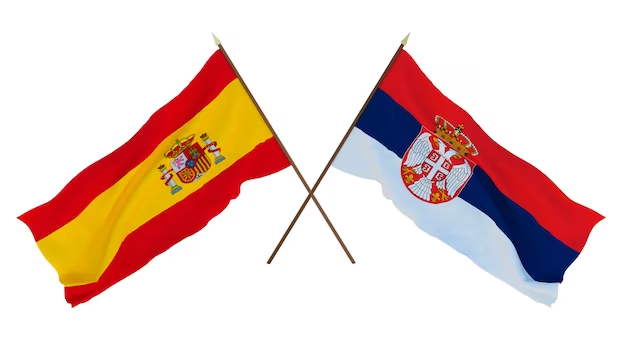- News >
- Kosovo Passport Twist: Spain Recognizes Documents, But Serbia Pushes Back
Kosovo Passport Twist: Spain Recognizes Documents, But Serbia Pushes Back

In a recent development of international significance, the Serbian government has formally requested clarification from Spain regarding its decision to recognise passports issued by Kosovo's Ministry of Foreign Affairs. This move by Spain, a member of the Schengen Area, has significant implications for travel and diplomatic relations in the region.
According to reports from El Periodico, a prominent Spanish news outlet, the Spanish authorities have already responded to Serbia's inquiries. This response is said to have addressed Serbia's concerns satisfactorily, though specifics of the communication have yet to be publicly disclosed by either party involved.

The situation became more complicated when José Manuel Albares, Spain's Minister of Foreign Affairs, European Union, and Cooperation, was questioned about his statement in April 2023. Minister Albares asserted that Spain would not recognise Kosovo's sovereignty or passports at that time. However, he clarified his position in a recent interview, indicating a shift in Spain's stance. "My statement described a situation that was accurate at that time [...] Seven months have passed since then, and Spain has to adapt just like the rest of the non-recognizing states. That’s why we started accepting Kosovar passports," Minister Albares explained.
He also refuted that this policy change represents a step towards formally recognising Kosovo. In his discussion with El Periódico de España, Albares highlighted that Kosovo's participation in EU summits alongside Western Balkan countries necessitates a pragmatic approach from Spain despite its ongoing refusal to acknowledge Kosovo's sovereignty. This stance aligns with four other EU nations – Slovakia, Cyprus, Greece, and Romania – that do not recognise Kosovo's independence but accept its passports for travel.

The debate over Spain's decision has been subject to controversy. The People’s Party of Spain has voiced criticisms and sought explanations from the Minister, questioning whether there was any influence or pressure from the Catalan political party in this policy shift.
In a statement to Radio Free Europe, Elena Aljarilla Cortezon, the Spanish Ministry of Foreign Affairs spokesperson, explained that the decision to recognise Kosovo passports was primarily to avoid legal complications for Kosovar citizens travelling to Spain. "All Schengen countries that do not recognise Kosovo have accepted using regular Kosovo passports. This, in no way, implies recognition of Kosovo," Cortezon emphasised.
This development follows the recent change that allowed Kosovo citizens to travel visa-free to Schengen Area member states, excluding Spain, from January 1, 2024. Spain began accepting Kosovo-issued passports shortly after on January 6. Besart Bajrami, founder of SchengenVisaInfo.com, pointed out that Spain's decision was inevitable, given the lack of border controls with Portugal, another Schengen member, which could have otherwise led to unregulated entry of Kosovar citizens.
These events mark a significant moment in the ongoing dialogue surrounding Kosovo's international status and its implications for travel and diplomatic relations within the European Union.
FAQs
Can Kosovar citizens now travel freely to Spain?
Yes, Kosovar citizens holding valid biometric passports can now travel to Spain and the Schengen Area for up to 90 days within 180 days without requiring a visa.
Does Spain's recognition of Kosovo passports mean they recognise Kosovo's independence?
No, Spain explicitly stated that recognising Kosovo passports for travel purposes does not constitute recognition of Kosovo as an independent state.
What are the potential implications of this decision for the future of Kosovo?
While not formally recognising independence, Spain's move could pave the way for more comprehensive international recognition of Kosovo and contribute to its integration into the European community. However, the path towards full global acceptance remains complex and depends on various political and diplomatic factors.
